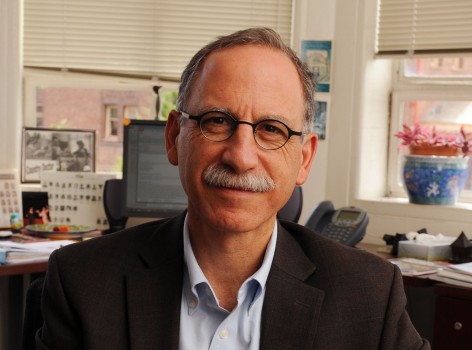You are looking at an archived version of our site. Please visit thepcc.org for a fresh, new experience!
You are here: Array » Primary Care Champion: ...
Primary Care Champion: Dr. Kevin Grumbach, UCSF Center for Excellence in Primary Care
About the Champion
Kevin Grumbach, MD is Professor of Family and Community Medicine at the University of California, San Francisco. He also practices family medicine at the Zuckerberg San Francisco General Hospital and the Lakeshore Family Medicine Center at UCSF Health. You can view his full bio here.
1. Why are you passionate about primary care?
My passion is rooted in my three decades of work as a family doctor. I have experienced the power of long-term, trusting relationships and caring for patients as whole persons — appreciating the tremendous benefit of healing relationships not only for the well-being of patients but for my own spirit and humanity.
2. If you had a magic wand that you could wave to change one thing (such as a policy or inequity) in primary care, what would it be?
Double the resources invested in primary care in the US. After spending decades working on various policy solutions to strengthen primary care that have not been sufficiently transformative, I have come to conclude that it really is that simple: primary care is starved for the resources needed to support robust teams to meet patient and community needs and make primary care an attractive and sustainable career.
3. What's one thing about your work do you want people working outside primary care to know or understand?
Our nation has gotten it backasswards in constructing a specialty- and hospital-dominated system that devalues primary care. Looking at the disgraceful performance of the US health system—life expectancy in the US now lagging 6 years behind our G7 nation counterparts, glaring health inequities, per capita health care costs double that of other high-income nations, rampant burnout among health care workers—one must recognize that an important contributor to this execrable state of affairs is the longstanding failure to prioritize primary care. A strong primary care sector won’t single-handedly solve all these problems, but we will never make sufficient progress without shifting a much larger share of health system resources to primary care.
4. Looking back on your career, what’s the most significant contribution to primary care that you or your team have made?
I view our team’s most significant contributions through a lens of Us and Thou. The Us represents the need for those of us working in primary care to get our act together to reform our mindset and practice models. My key partner in this work has been Tom Bodenheimer, co-founder with me of the UCSF Center for Excellence in Primary Care. Tom joined UCSF in 2003 after spending decades in full-time clinical practice and brought keen insights about the need for primary care practices to innovate to better meet the needs of patients and primary care workers alike. Between 2002 and 2004, Tom and I, along with guest collaborators, published an Innovations in Primary Care series of articles in JAMA. This work helped build momentum for collective efforts in practice transformation such as primary care organizations producing the Joint Principles of the Patient-Centered Medical Home in 2007 and the formation of what is now the Primary Care Collaborative. In 2014, Tom and I collaborated with other members of the Center for Excellence in Primary Care in developing the 10 Building Blocks of High Performing Primary Care, which has served as a roadmap for practice redesign in the US and internationally.
The Thou represents the need for stakeholders controlling resources to reciprocate in efforts to revitalize care by investing the resources needed to achieve this goal. My contribution on this front along with other like-minded rabble rousers has been to challenge those of us working in primary care to be more radical in confronting the forces that maintain the status quo. Forty years ago, the sociologist Paul Starr, wrote in the first sentence of his book, The Social Transformation of American Medicine, that “The dream of reason did not take power into account.” I am increasingly troubled by the growing power held by massive, investor-owned health care conglomerates, which I believe is inimical with actualizing primary care as a common good (to borrow a term from the recent NASEM report on primary care). I believe that primary care physicians need to partner with patients, health care workers, and other constituents to build a social movement to democratize health, taking power back from interests profiting from the status quo and reorienting the system to one grounded in healing relationships in primary care.
Recent News
August 16, 2024
August 12, 2024
July 16, 2024
Statement from @AnnGreiner1: "Today’s new @CMSinnovates announcement is a promising step forward for #primarycare p… https://t.co/A6l5Rt9Fzb —
2 years 8 months ago
RT @LarryMcNeely1: @brookslasure says #primarycare relationship is foundation of care...announcing the "Making Care Primary" model from @C… —
2 years 8 months ago
RT @LarryMcNeely1: stressing alignment w Medicaid. 8 States participating including CO, NM, MA. —
2 years 8 months ago
Secondary menu
Copyright © 2024 Primary Care Collaborative




